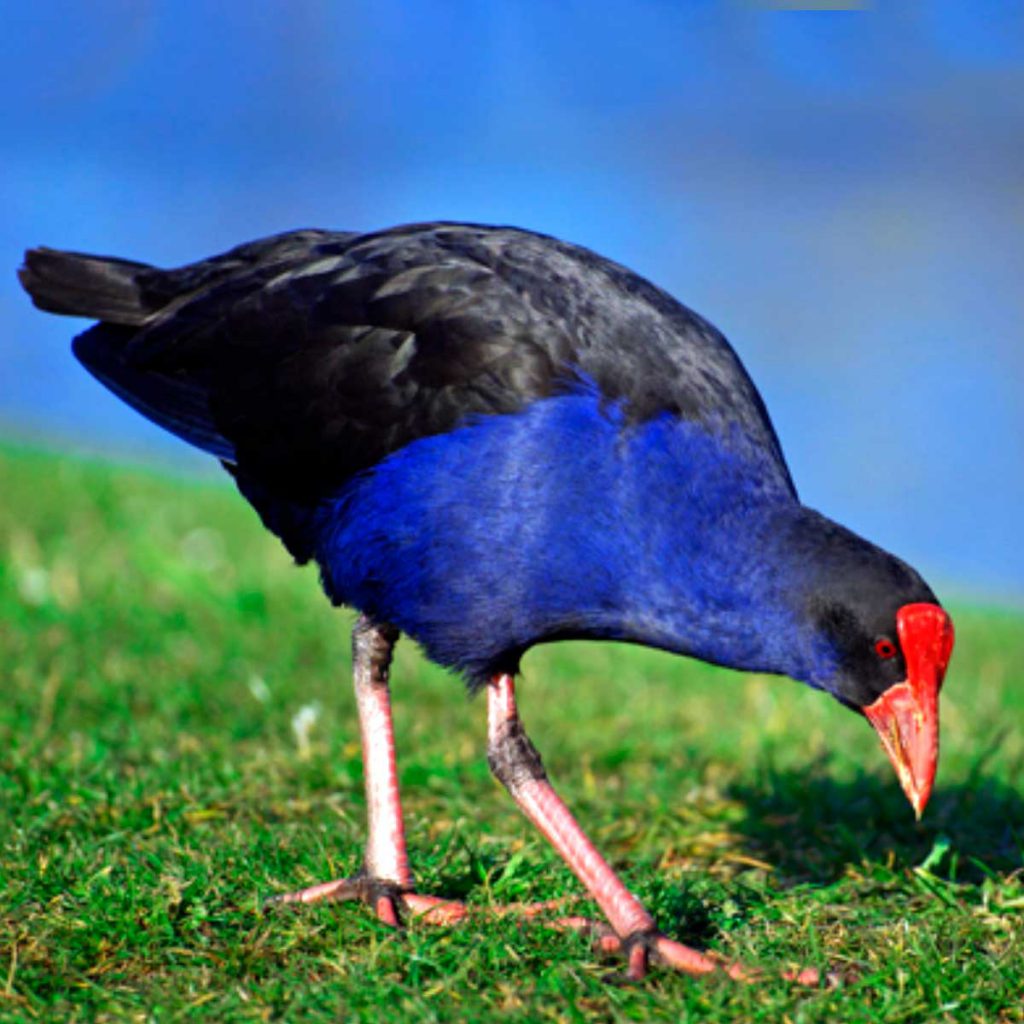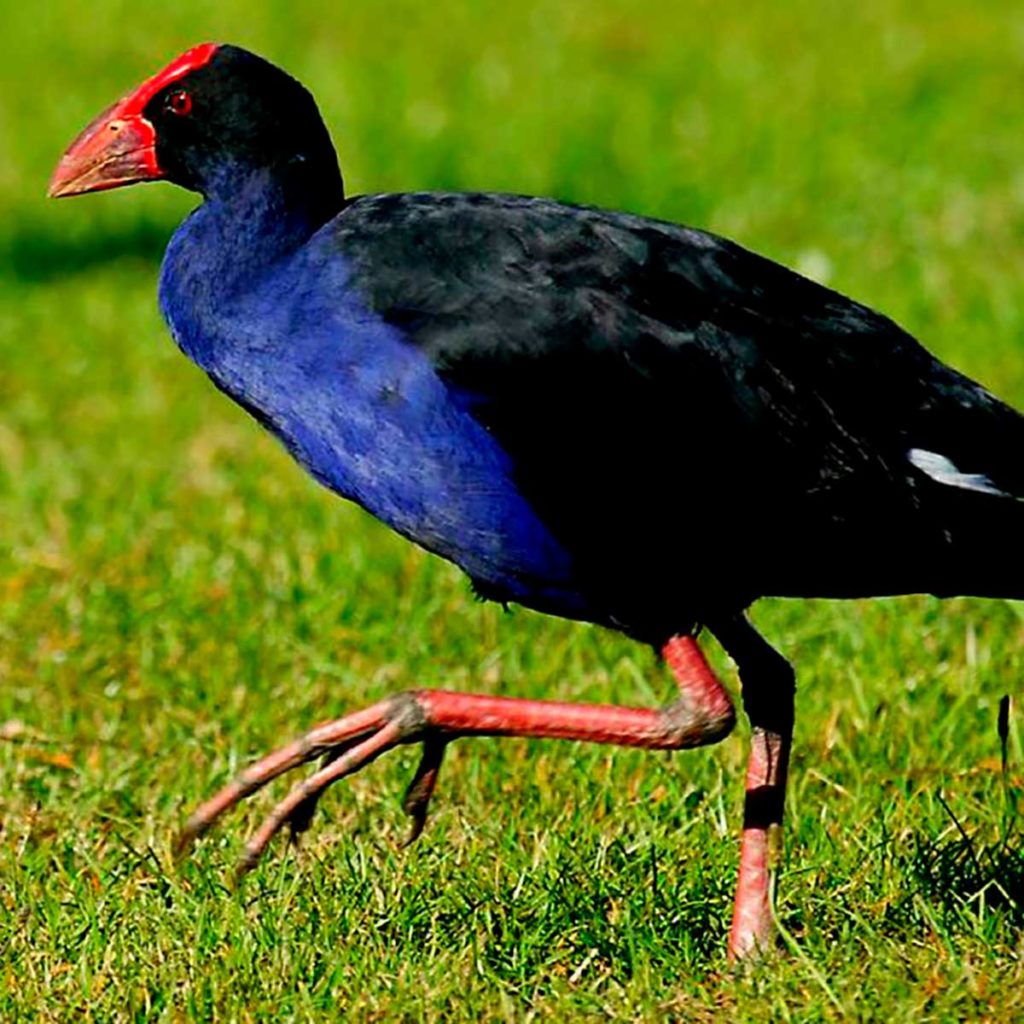
Birds / Pukeko
Information for Juniors
Pukeko
- The Pukeko is a native to NZ, is also called a swamp hen.
- It is found throughout NZ
- Its distinctive colours of black and blue with bright red on its head and beak
- They are bold, scheming and very determined.
- They steal eggs from nests and known to raid local gardens for kumara and potato, while basically feeding around wetland areas, eating fresh stems, shoots and seeds of grasses.
- The female lays her eggs in a nest well hidden amongst the Raupo (bulrushes).
- She lays 4-6 eggs per brood, with the male assisting with the incubation which lasts up to 30 days, normally in October.
- Adults protect their chicks furiously and can be observed attacking cats and stoats that come near.
What does it sound like?


Information for Junior Secondary
Pukeko
- The Pukeko is a native to NZ, is also called a swamp hen.
- It is found throughout NZ
- Its distinctive colours of black and blue with bright red on its head and beak
- They are bold, scheming and very determined.
- They steal eggs from nests and known to raid local gardens for kumara and potato, while basically feeding around wetland areas, eating fresh stems, shoots and seeds of grasses.
- The female lays her eggs in a nest well hidden amongst the Raupo (bulrushes).
- She lays 4-6 eggs per brood, with the male assisting with the incubation which lasts up to 30 days, normally in October.
- Adults protect their chicks furiously and can be observed attacking cats and stoats that come near.
What does it sound like?


Information for Seniors
Pukeko
- The Pukeko is a native to NZ, is also called a swamp hen.
- It is found throughout NZ
- Its distinctive colours of black and blue with bright red on its head and beak
- They are bold, scheming and very determined.
- They steal eggs from nests and known to raid local gardens for kumara and potato, while basically feeding around wetland areas, eating fresh stems, shoots and seeds of grasses.
- The female lays her eggs in a nest well hidden amongst the Raupo (bulrushes).
- She lays 4-6 eggs per brood, with the male assisting with the incubation which lasts up to 30 days, normally in October.
- Adults protect their chicks furiously and can be observed attacking cats and stoats that come near.
What does it sound like?


